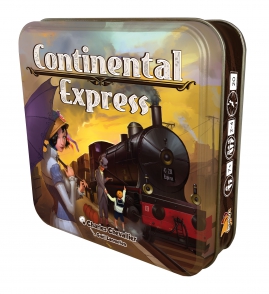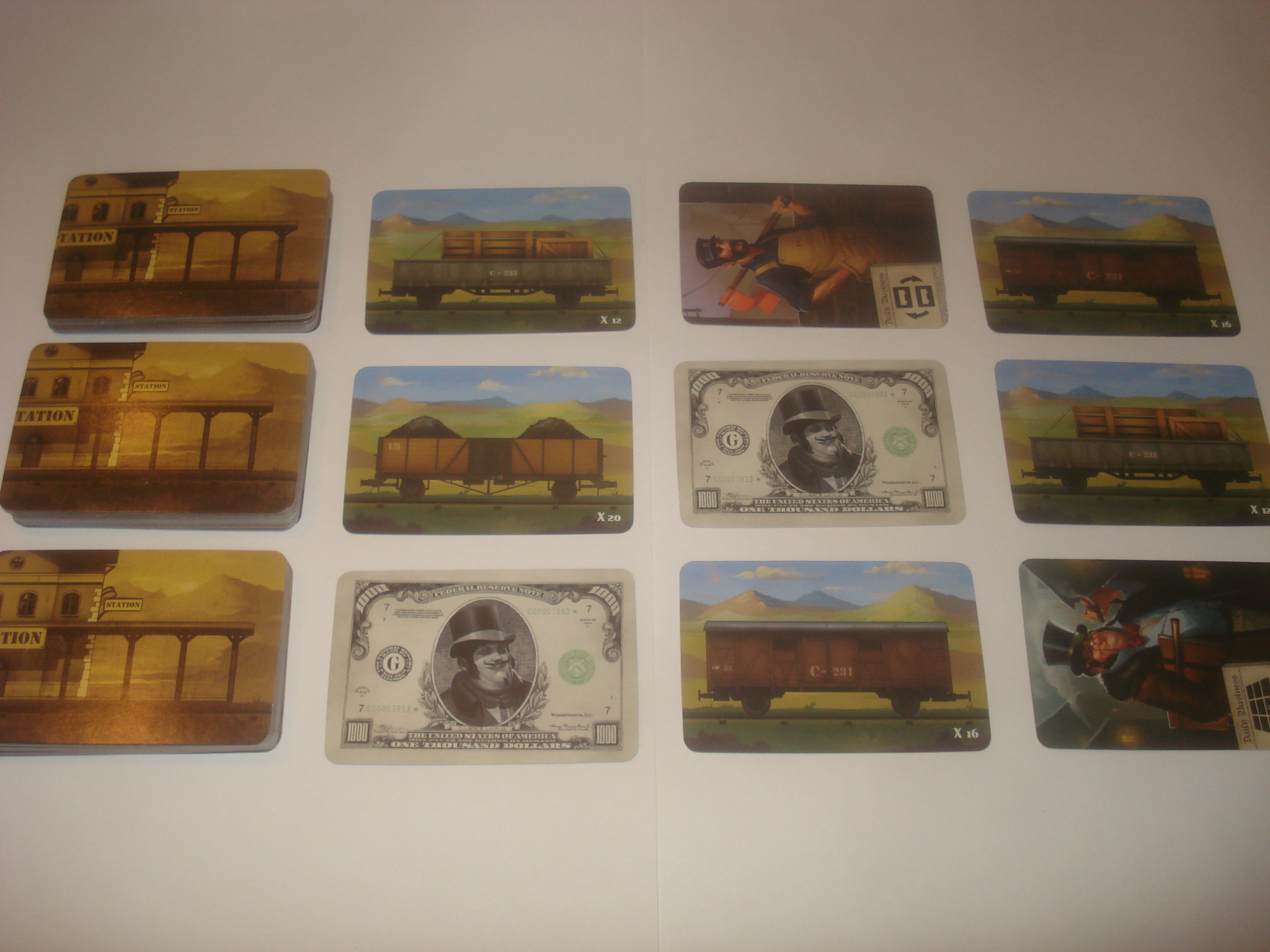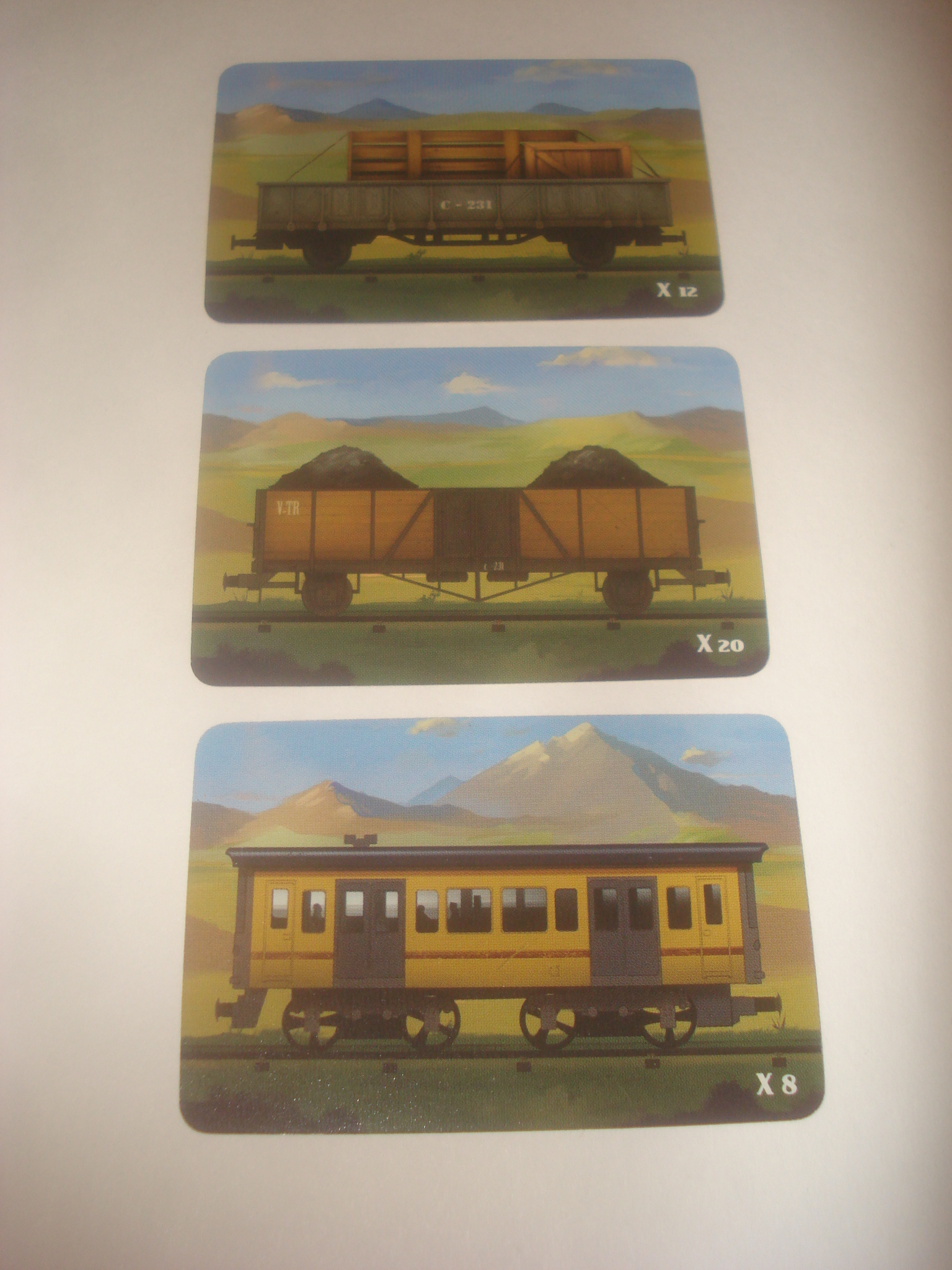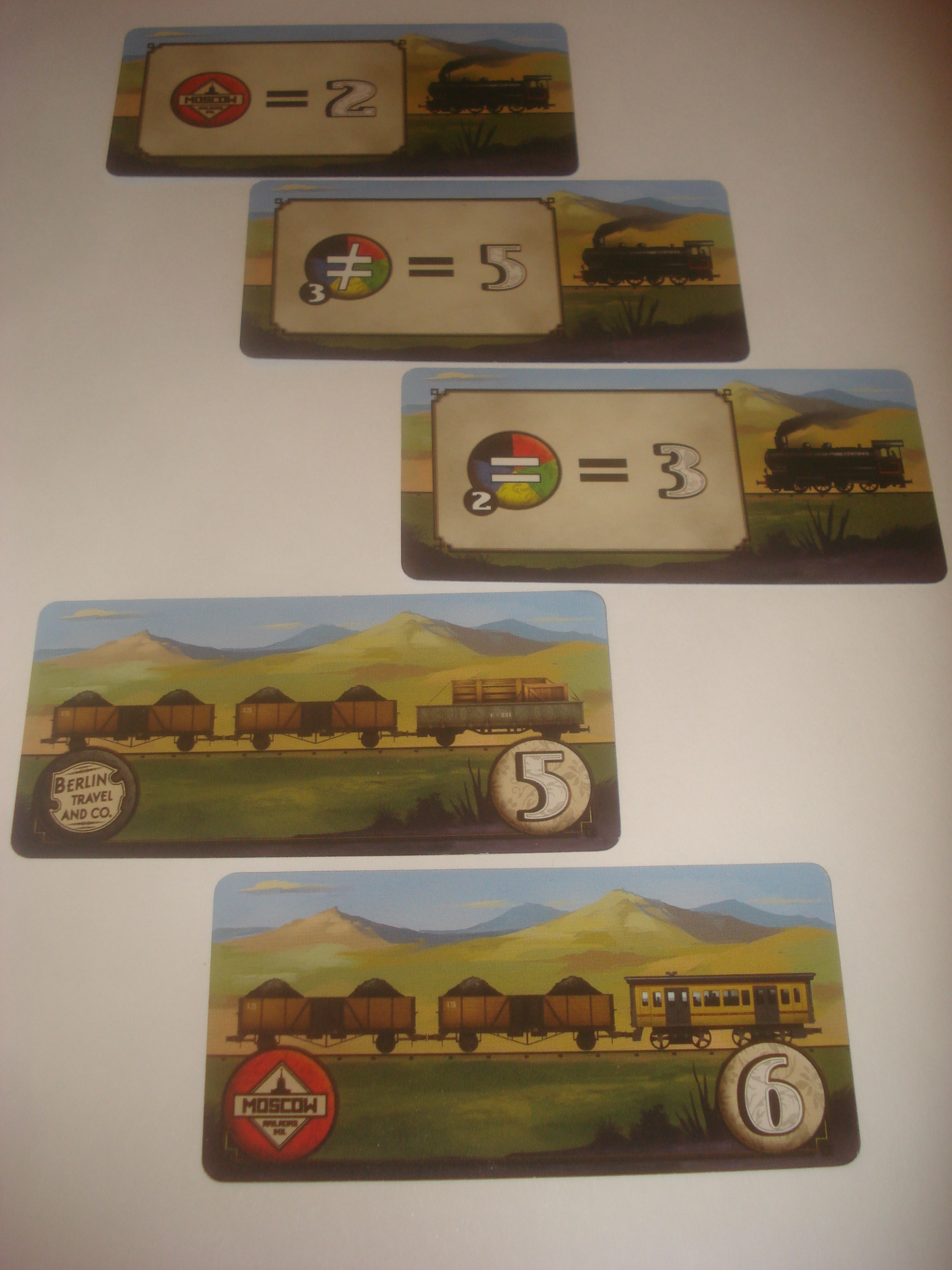| Publisher | Asmodee Editions and Bombyx |
| Design Credit | Charles Chevallier |
| Art Credit | Gaël Lannurien |
| Editing Credits | Eric Franklin, William Niebling, Laurent Pouchain, Sylvain Thomas, Benoit Forget |
| Translation Credit | Eric Harlaux |
| Game Contents | 82 Small cards (58 Train Cars, 10 Characters, 12 Banknotes, two Events), 30 Long cards (20 Objectives, 10 Contracts), 20 Company tokens, rules, tin container |
| Guidelines | Train car collecting game |
| MSRP | $17.99 |
| Reviewer | Andy Vetromile |
There’s a (no pun intended) long line of games dealing with running a railroad, choosing routes and transferring cargo through various areas. Someone has to get things started, though, and that’s where the railyard managers of Continental Express come in. Unless you want the yard to look like the parking lot at a college kegger, someone’s got to call the shots. Hook together the cars the companies are looking for and you’ll receive all the contracts needed for a lucrative career.
The goal is to have the most points when someone achieves their fourth Objective.
Two to four players, starting only with a secret Contract card, take charge of hooking together Train Cars for transport. There are Small cards depicting individual Train Cars (a box car, a coal carrier, and so on), and long cards that show the Objectives, a selection of two or three Train Cars needed to fulfill that order. When someone has the right combination they may trade in their cars for a matching Objective.
The Small cards are split into three decks, and each deck produces a line of three cards so nine cards are available. Likewise, there are always three Objectives. On his turn a player has a required and an optional action. He must take one of the Small cards and, if he has the right mixture and wants one of the long cards, he may trade those Train Cars to get a matching Objective. Each long card is worth a number of points and has a Company seal on it. The Contract assigned to the player at the start offers extra points for collecting sets of these Company symbols – two of the same color company, for example, or perhaps a selection of different colors.
In addition to Train Cars there are Banknotes and Characters in the decks – and a couple Events (disasters) to boot. Only the three Small cards furthest along from the deck are free; the next one in costs a Banknote and the closest costs two. Not all Train Cars are created equal; some are rarer than others (each car lists how many of that type are in the deck), and the more uncommon a car is the more valuable are the Contracts that demand its inclusion. Characters are figures from the railyards who let you steal Banknotes; trade Train Cars; get any Small card for free; or pick up Company tokens that count the same as the printed Company symbols. The disasters, meantime, wait until your game is going really well and you have a solid strategy in place, then pop up to sweep aside the Small or Objective cards you were about to collect in favor of a whole new selection.
Once a player adds a fourth Objective to his collection his competitors have one more turn to take care of business and then the game ends. Player get points for Objectives and their secret Contracts, and each unspent Banknote is worth a point as well. The high total wins.
It’s another of Asmodee’s recent series of small games in a little canister. The tin leans toward a sepia-toned theme and is beautifully illustrated, with the picture stamped in relief on the can’s contours. Inside there’s a well-molded insert with a velvety surface that snugly contains the card decks, though no provision is made for storing the Company tokens. The rules are brief but thorough, and the long cards are easy to grip and use. The Small deck is, well, whatever your experience has been with 1 ½” × 2 ½” cards (anyone familiar with Ticket to Ride or Arkham Horror knows this woe); they’re tricky to grab and a pain to shuffle, but their artwork is similarly clean and colorful. Mind, “clean” doesn’t always mean “clear.” Too many Train Cars have an element of yellow, the black and blue Company tokens look almost identical, and since everything is so compact a small rulebook means small illustrations for reference. Still, the components are second nature after a couple plays and the Characters, though unlabeled, indicate their function through graphics (saving you squinting at the rulebook; thus is language independence preserved). There’s even an “advertisement” card one can use in their Timeline game series.
While there may not be much innovative about how Continental Express is put together or plays, it’s a pleasure to find a train-themed game as brief but engaging as this one. It lives up to the box’s 20-minute promise, all the while delivering giddy little thrills as players wait to see the state of things when their turn comes around. It’s strange (and artfully done) how often one is stuck with an unpleasant choice of which card to take – so many times it means freeing up something the next player can make devilish use of, and one has to pick the least of the three evils. Money is useful but not complicated, and while the strategy isn’t deep it’s nevertheless varied and strong. One might go for cards whose Companies fulfill Contract bonuses at the end, or take the brute-strength route and wait for the big-number Objectives to come up.
Some things don’t sit quite right, like providing 20 Company tokens when only four are used per game, but it’s a necessary evil. Holding onto the Director Character cards instead of assigning counters as they were earned would add unfair weight to some Contracts (Directors would effectively be “wild cards”), so tokens may ultimately be the most elegant solution (storing them is another issue – a plastic baggy would be nice, but they actually fit back into the counter sheet fairly smoothly if you think to hold on to it). Continental Express is fast and fun, and the short duration is an enticement to play again, to show others you’ve learned from your mistakes (“I know what I’m going to do this time . . .”). All the ingredients needed for an enticing, replayable strategy game are stored in this wee, tough package, showing that no space was wasted in keeping this train running on time.



